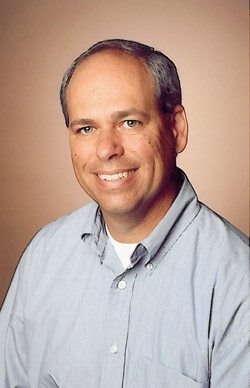Tackling Reform Nothing New for WRMC Executive
by January 22, 2012 3:45 pm 193 views

This isn’t Larry Shackelford’s first health care crisis.
Shackelford, a member of the Northwest Arkansas Business Journal’s inaugural Forty Under 40 class in 1998, is senior vice president for outreach services at Washington Regional in Fayetteville.
“I think most everybody agrees the system is broken,” Shackelford said of America’s current health care mess.
Shackelford was CEO at the recently formed Medical Services of Northwest Arkansas Inc. in 1998. In MANA, Shackelford helped combine the forces of Fayetteville Diagnostic Clinic, Northwest Arkansas Pediatric Clinic and First Care Family Doctors under one umbrella.
“Looking back, there was a lot of uncertainty in the market at that time also,” Shackelford said. “It was an era in which reimbursement was declining and expenses were increasing.
“It was really the eve of employers saying, ‘We can’t continue to have our premiums go up’ while seeing that reimbursement was flat, or in some cases declining, and the cost associated with the medical practices were increasing.”
This time around, it isn’t just employers crying out for help.
“You compare that to where we are now, and the change is even that much more dynamic. … Now the government is saying, ‘We can’t do this,’” Shackelford said.
In his current role, Shackelford oversees “everything the Washington Regional health system does outside of the hospital itself.”
“Everything” consists of about 15 medical practices with about 70 doctors and other providers at locations stretching from Fayetteville to Eureka Springs to Harrison. It includes dialysis centers, a surgery center and Health Partners, a physician-hospital organization.
But what’s been the most fun for Shackelford, who left MANA for Washington Regional about 18 months ago, has been helping “define where we need to be in light of what’s coming down the road.”
“Again, I think there’s pretty solid agreement that it’s broken,” he said, “but there’s tremendous variability in terms of ideas as to how to fix it.
“There’s a real feeling of, ‘Fix it, but I don’t want my ox to be gored.’ No matter where you look, it’s somebody else’s issue.”
Shackelford, a Fayetteville native who earned an accounting degree at the University of Arkansas, has his own ideas of what’s coming, based on more than 20 years working in the industry. He’s intrigued by accountable care organizations, package pricing and other alternatives to the current system.
What Shackelford seems most convinced of, though, is the need for a shift in thinking when it comes to health care.
“We’ve got to move from a sick care system — it pays you when you’re sick — to moving to more of a health care system that pays you to keep people well.”
Along those lines, Washington Regional offers its employees premium discounts if they’re willing to fill out a personal health assessment, set goals and work toward achieving them.
“Part of the fix is more of the individual responsibility of, ‘If I manage my health … I’m going to have some sense of benefit from that,’” Shackelford said.
Shackelford also enjoys the team atmosphere commitment to a greater good at Washington Regional. It’s similar, he said, to the one he helped establish at MANA.
Shackelford said his biggest piece of advice to anyone considering a career in health care is to embrace that mentality.
“If you’re really about the mission, if you’re really about trying to take care of the patients … I don’t think there’s any profession more rewarding when things go right and you see people who come in and when they leave, their health has been restored,” Shackelford said.
On a personal level, Shackelford said his advice to young professionals is the same regardless of the industry they choose.
“You really do have to live now,” he said. “You can’t live for tomorrow.
“If you’re not careful, you miss what happens between where you are now and where you’re trying to get to.”
As for his own destination, Shackelford said his idea of retirement has changed since 1998. Fourteen years from now, he’d like to “continue to be engaged” while enjoying more time with his family and indulging in his favorite hobbies — bird hunting, fly fishing and fly tying.
“It’s kind of cool to take a pheasant you killed on Saturday,” he said with a smile, “and figure out a way to put it on the hook and go catch a trout the next Saturday.”
